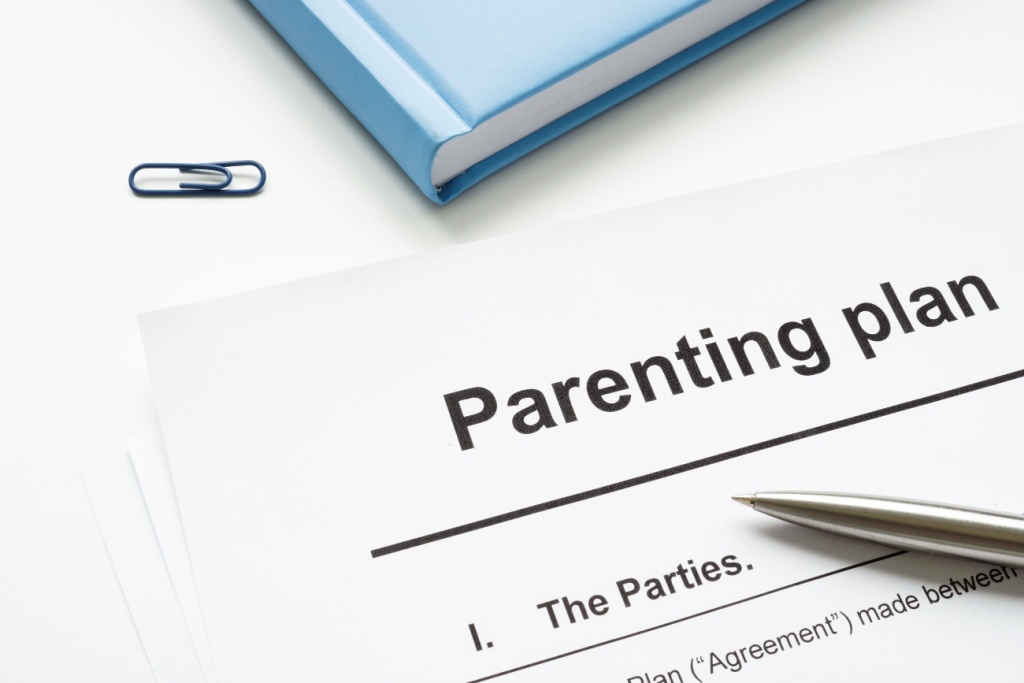A parenting plan is a written agreement that outlines each parent’s specific rights, duties and responsibilities regarding the care and decision-making of their children. This plan can either establish the initial terms or modify an existing agreement based on the evolving needs of the parties and children. However, while parenting plans serve various purposes, many people still do not understand their exact role. In the guide below, we will review these plans in more detail and explain how they can impact you and your family.

How To Create a Maryland Parenting Plan?
Various aspects are addressed within a parenting plan, including the schedule for when children will be in each party’s care and how significant decisions regarding the children’s upbringing will be made. It is also worth noting that parents have the flexibility to collaboratively develop the plan together, separately, or with the assistance of a professional mediator to ensure that the plan is comprehensive and serves the best interests of the children.
Once both parents agree to a parenting plan, it is often submitted to the court to become part of a court order. However, if the parenting plan is not submitted to the court then it remains an agreement / contract between the parties. If the court determines that the plan is indeed in the best interest of the children, it can incorporate the terms into a legally binding court order, granting the court the authority to enforce it. In cases where both parents are unable to reach an agreement on the parenting plan, the court will assume the responsibility of determining the most suitable arrangement for the children based on their best interests.
What Is the Purpose of a Parenting Plan?
Parenting plans play a crucial role in minimizing conflicts that may arise by clearly outlining the roles, responsibilities, and expectations of each parent. However, there are many other benefits that parenting plans can provide, including the following:
Offers Structure
A parenting plan is a detailed agreement that outlines how separated or divorced parents will share responsibilities and make decisions regarding their children. It includes visitation scheduling, sharing responsibilities, financial support, and any other relevant arrangements. This plan serves as a guide to establish a consistent and stable environment for the children while living in two separate households.
Fosters Collaboration Between Parents
A parenting plan serves as a structured framework that encourages mutual cooperation and joint problem-solving. By facilitating effective communication and shared decision-making, it aims to create a harmonious co-parenting environment for the benefit of the children involved.
Helps Relationships Continue
A proper parenting plan will cover details regarding custody arrangements, visitation schedules, communication methods, and decision-making processes. The goal of these plans is to ensure that the children maintain meaningful and ongoing relationships with both parents while also addressing the children’s best interests including consistency and stability.
Helps the Court Make Fair Decisions
Even if the parties cannot agree on making the parenting plan part of a court order, it is helpful to a court when making a custody decision to provide insight into a family’s dynamic so the court can make informed and equitable child custody orders based on the children’s best interests, including the status quo.
Allows Parents To Decide
A parenting plan allows parents to collaboratively establish arrangements for their children regarding matters such as custody, visitation, and other important issues rather than leaving those decisions to be determined by the court.
Contact Rice Law Today To Discuss Parenting Plans in More Detail
With over 50 years of combined experience, Rice Law is recognized as the Leading Family Law Attorney in Maryland. Our family law attorneys fight for individuals facing challenging situations, and we are ready to help you today.
If you are looking for further information regarding parenting plans in Maryland or want to discuss the divorce process in more detail, contact Rice Law and speak with our dedicated and experienced legal team.
Blogs published by Rice Law are available for informational purposes only and are not considered legal advice on any subject matter. The reader understands that by viewing blog posts no attorney-client relationship is created between the reader and the blog publisher, Rice Law. The blog should not be used as a substitute for legal advice from a licensed professional attorney, and readers are urged to consult their own legal counsel on any specific legal questions concerning a specific situation.

